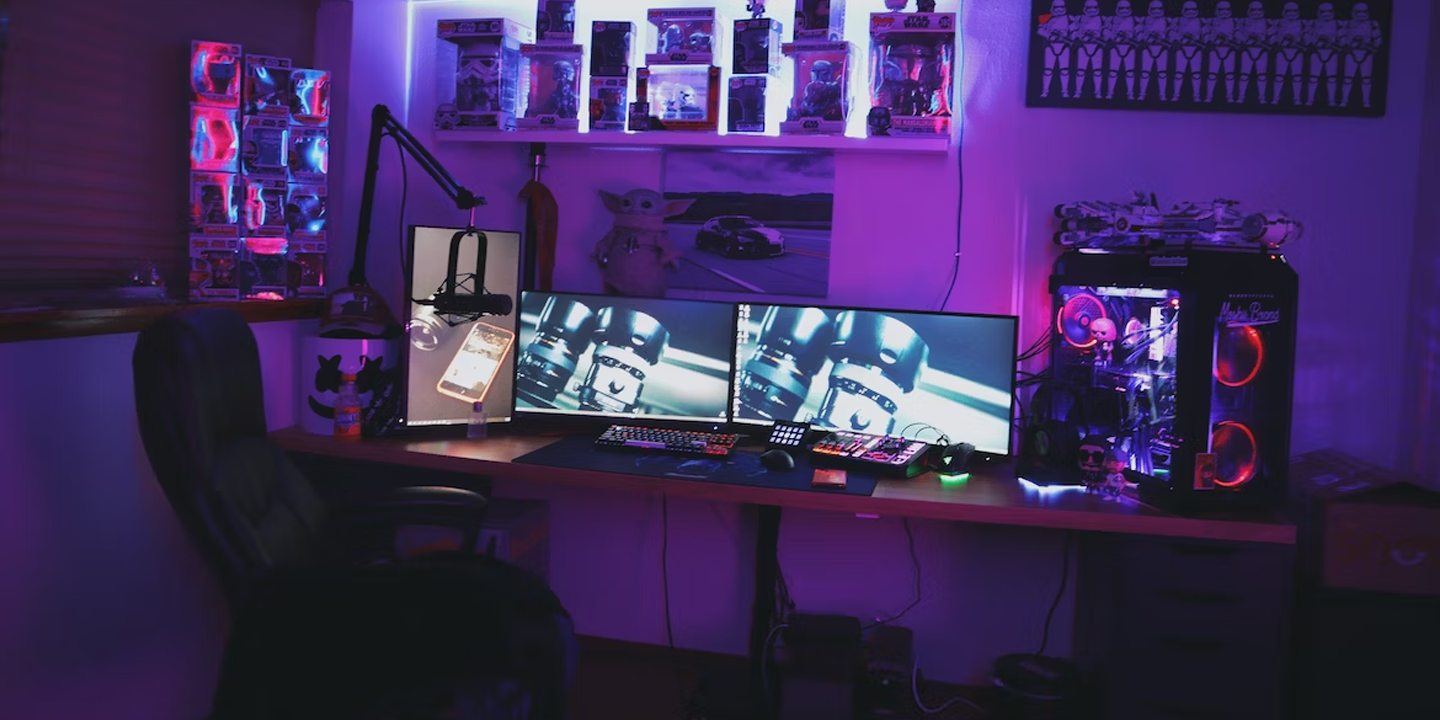Could Gaming Actually Make You Smarter?
For many years, the narrative around video games as they relate to child development was overwhelmingly negative. Games were blamed for everything from obesity to school shootings. More recently, however, the script about gaming has been almost completely flipped. Although they should still be enjoyed in moderation, studies have found playing video games to be good for your brain in a multitude of ways. Here are 20 reasons to grab the controller (like you needed an excuse).
1. Improves Problem-Solving Skills
Many games present complex challenges that act as an exercise for the brain, enhancing problem-solving skills. In order to beat a boss to pass to the next stage, for example, you have to analyze the situation and find the correct path.
2. Enhances Creativity
Gaming can enhance creative thinking because players must make choices to shape the narrative. This is particularly true with sandbox and open-ended games like Minecraft, which provide tools and vast open worlds with no strict objectives.
3. Improves Strategic Thinking
Games, especially those in the puzzle genre like Portal, force players to think out their strategy. This requires planning many steps, assessing risk, analyzing opponents, and allocating resources effectively.
4. Improves Hand-Eye Coordination
Forget sports, nothing tests your motor skills quite like Cuphead's final bosses. Games enhance your hand-eye coordination by requiring you to quickly react to visual stimuli in a physical manner, whether it be through a controller, mouse, or VR gear.
5. Enhances Memory
Video games enhance both your long-term and short-term memory by requiring you to manage a lot of different pieces of information. For example, you have to remember enemy controls, quest objectives, and controls for that specific game. In some cases, you may also need to recall complex lore, storylines, and character histories.
6. Improves Visuospatial Skills
Games require players to navigate complex 2D or 3D worlds and visualize objects from different perspectives. They also require you to judge distances and depths, enhancing spatial awareness.
7. Makes You A Better Team Player
Team-based games require you to collaborate effectively, sometimes with total strangers. This fosters a sense of collective responsibility that is invaluable in many important facets of life including your career and relationships.
8. Improves Concentration
Many games require sustained attention which can train the brain the maintain focus for longer periods. For example, fast-paced action games require players to filter out distractions and react quickly. However, games that are over-stimulating may not be as effective in this regard.
9. Speeds Up Cognitive Processing
The quick reaction time required by many games, especially action-based ones, can speed up cognitive processing. As gaming is mentally stimulating, it can even lead to changes in brain structure that result in more efficient neural pathways.
10. Improves Social Skills
It may seem counter-intuitive to say that gaming improves social skills, but multi-player games that require effective communication, cooperation, and teamwork help build social skills.
There's also a strong gaming community that is great for helping people branch out socially and connect with people from different backgrounds.
11. Can Help With ADHD
There's a common misconception that games exacerbate ADHD, but research suggests the opposite. Games that require sustained focus and reward attention to detail have been shown to help people with ADHD. Some games have even been specifically designed with this goal in mind.
12. May Improve IQ
A 2022 study found that those who game tend to have higher IQs. This is likely because certain types of games enhance the cognitive skills that IQ tests usually measure such as problem-solving, spatial intelligence, and processing speed.
13. Can Help With Emotional Regulation
This one may come as a surprise as the image of a frustrated teen shouting at their screen comes to mind, but it's better for them to shout at their screen than their friends or teachers. Games provide a healthy place to let off steam and relieve stress.
14. Facilitates Lucid Dreaming
A neat and unexpected side effect of gaming is that it's associated with a higher frequency of lucid dreaming. Research suggests that gaming may enhance metacognitive (thinking about thinking) skills which have been linked to lucid and more vivid dreams.
15. Improves Computer Literacy
As each game has a different user interface, gamers become adept at quickly learning and adapting to new digital interfaces.
They also introduce players to different platforms and software, and certain open-ended games even provide the opportunity to learn basic coding.
16. Enhances Reading & Comprehension Skills
Certain games actually require a lot of text that players are often more motivated to read and understand than if it were a book because their success depends on it. If the text comes and goes quickly, it also encourages players to be faster readers.
 Jessica Lewis 🦋 thepaintedsquare on Pexels
Jessica Lewis 🦋 thepaintedsquare on Pexels
17. Exposes You To Different Cultures
The gaming community is a global, multicultural bunch. Gaming provides a platform for making friends from different parts of the world. What's more, many of the most popular games were created and are set in places like Japan, so playing them can provide insight into different cultures.
18. Builds Resilience
Many games require perseverance and grit to complete, and when you get stuck, it can be quite frustrating. You have to learn how to manage these emotions and bounce back from failure as well as deal with all the trolls you'll inevitably encounter in the online gaming community.
19. Enhances Multitasking Skills
Gaming can enhance multitasking skills by encouraging players to effectively juggle multiple tasks like keeping track of resources, enemy positions, environmental changes, and the task at hand. You have to learn how to prioritize tasks much like you would in a busy professional environment.
20. Enhances Decision-Making Skills
Games, particularly fast-paced action ones, force you to think and act quickly in response to rapidly changing events. In addition to the simple minute-to-minute actions required to keep you alive, you must also plan long-term and predict consequences in real-time. Collaborative games also require team-based decision making for which you must communicate and understand different perspectives to make the right collective decision.



























